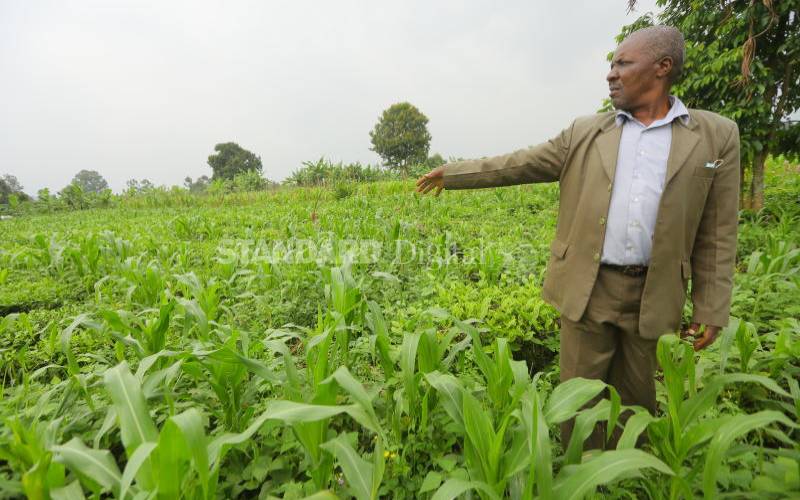×
The Standard e-Paper
Stay Informed, Even Offline

Meshack Nyambane started farming as soon as he completed his secondary education, four decades ago and has never looked back.
The 67-year-old father of nine is a successful farmer at Nyabiosi village in Nyaribari Chache Constituency, Kisii County, harvesting up to 30 bags of beans a year from the three planting seasons.